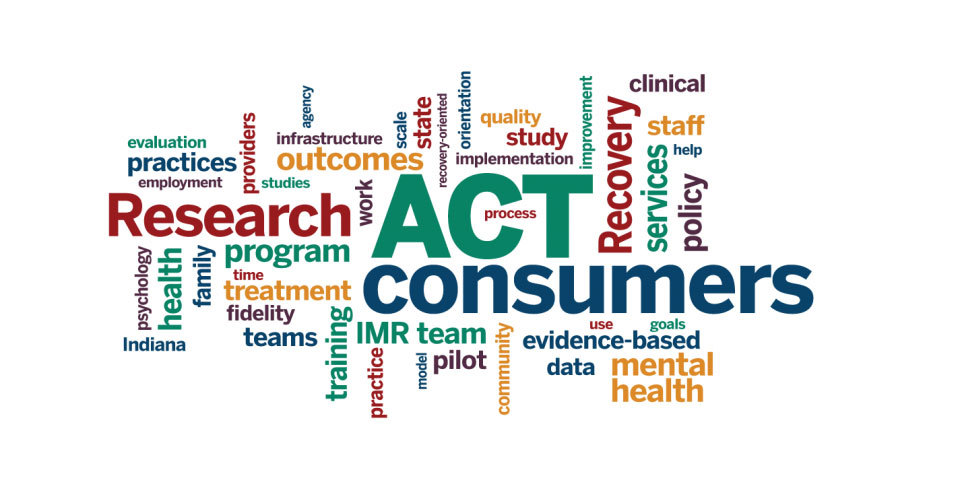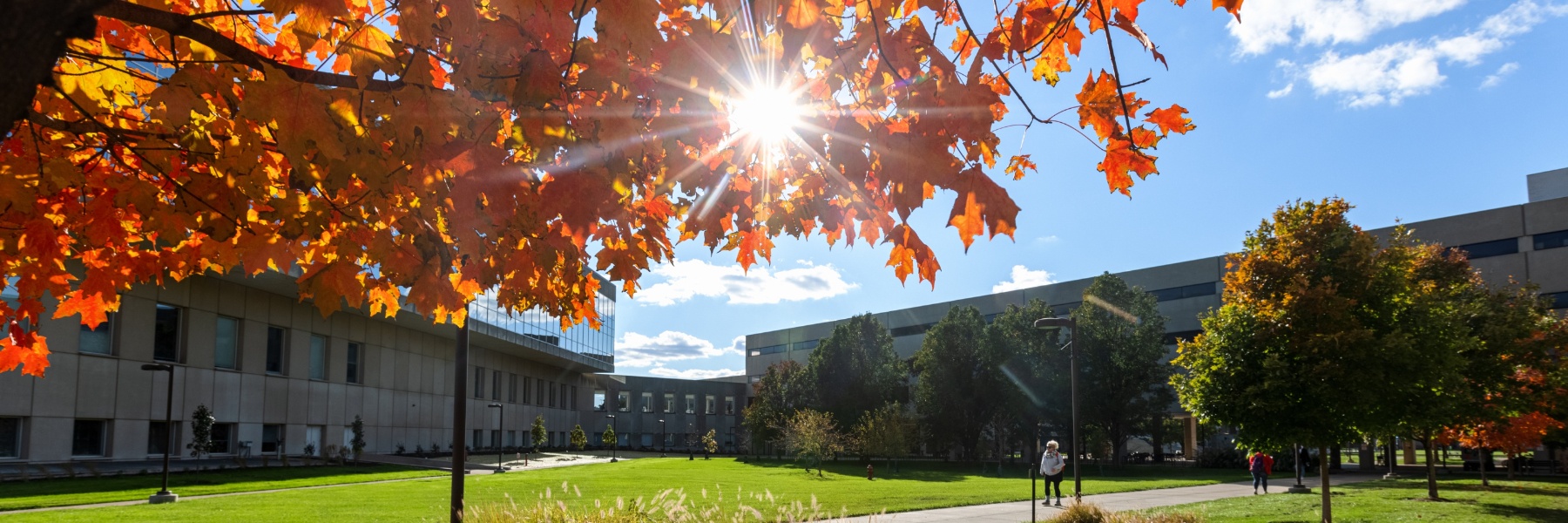The ACT (Assertive Community Treatment) Center of Indiana is a research and training center focused on evidence-based mental health practices that support recovery in adults with severe mental illnesses.
About us

We began as a collaboration of the Department of Psychology and School of Social Work at Indiana University-Purdue University Indianapolis (IUPUI) and Adult & Child Mental Health Center of Indianapolis. Other partners include the Center for Health Information and Communication (CHIC) at the Richard L. Roudebush VA Medical Center, Eskenazi Health, Places for People and their Illume Center of Excellence. We have active research and training projects with a variety of other mental health centers and university-based researchers.
Our approach is to combine training and implementation with ongoing program evaluation and research. Our center is comprised of a team of researchers, clinicians, consultants, educators, consumers, and family members who have experience in evidence-based practices to help people recover from the effects of severe mental illnesses. This originally started with assertive community treatment (ACT – hence our name) but now incorporates a variety of interventions.
A brief history
In the summer of 2001, Indiana Division of Mental Health and Addiction (DMHA) launched an initiative to create a network of assertive community treatment (ACT) teams across the state. To help support that effort, DMHA funded us as a technical assistance center to provide training, consultation, and program evaluation for ACT teams in Indiana. We helped support the effort, from 3 initial ACT programs in 2001, to approximately 30 ACT programs at the height of ACT in Indiana in 2010, when the service stopped being funded.
In 2002, we began supporting Integrated Dual Disorders Treatment (IDDT) programs -- a result of our being selected to participate in the larger National Implementing Evidenced Based Practices Project. We often work with colleagues at the Ohio SAMI Coordinating Center of Excellence to provide training in IDDT and related practices.
In 2003, we began helping programs implement Illness Management and Recovery (IMR) through two federally-funded grant projects – one of which focused on peer recovery specialists on ACT teams. We continued work in that area, with intervention studies and tools to support implementation.
In 2007, we were awarded an Interventions and Practice Research Infrastructure Program from the National Institute of Mental Health. This 5-year grant (Recovery Oriented Assertive Community Treatment) provided research infrastructure to better help integrate research and practice.
In 2008, we were selected as an IUPUI Signature Center to recognize our unique contribution and help expand our work in family involvement in recovery.
Today we continue collaborating as a “virtual” center with researchers, providers, consumers, and family members on a variety of research projects to support well-being and recovery.



